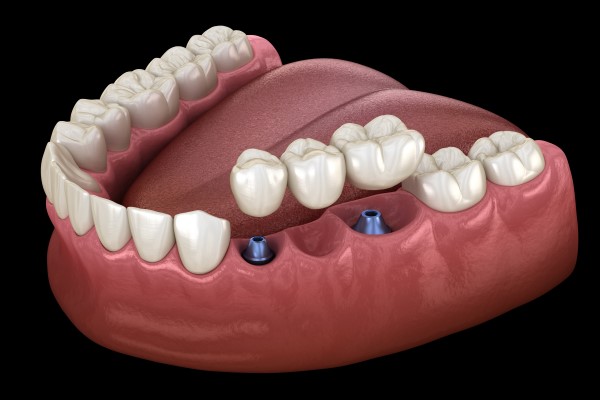Dental implant bridges are a great way to restore your smile with precision in the field of dental restoration. If you’re missing one or more teeth, a dental implant bridge can provide a stable and natural-looking tooth replacement option. This article explains dental implant bridges, including their benefits, procedures, and what to expect before and after treatment.
What Are Dental Implant Bridges?
Dental implant bridges are prosthetic devices used to replace missing teeth. They consist of two main components: the dental implants and the bridge itself. Implants act as fake tooth roots, giving a strong base for the bridge that fills the space left by lost teeth. This treatment makes your smile look better, helps you chew properly, and stops more dental problems from happening.
The Procedure: How Dental Implant Bridges Are Installed
To get a dental implant bridge, you need to consult with your dentist first. During this consultation, your dentist will check your oral health and discuss different treatment options with you. Here’s a breakdown of the procedure:
1: Initial Assessment and Treatment Planning
During your first visit, the dentist will thoroughly examine your mouth. They may use X-rays or other tests to get a clear picture. This test determines if dental implant bridges are suitable for you. It also helps your dentist create a personalized treatment plan for you.
2: Implant Placement
The next step involves the placement of dental implants into the jawbone. Surgeons typically perform this procedure under local anesthesia to ensure your comfort. Your dentist will place implants in your jawbone, where they will bond with the bone tissue through osseointegration.
3: Healing and Integration
After placing the implants, the patient needs a period of healing to allow osseointegration to occur. During this time, the implants become firmly anchored to the jawbone, providing a stable foundation for the dental bridge. The time it takes to heal can vary from a few weeks to several months, depending on individual factors.
4: Bridge Fabrication and Placement
After the implants fully attach to the jawbone, we make molds of your mouth to create the dental bridge. The bridge is custom-made to fit your mouth and match the color and shape of your natural teeth for a seamless appearance. Once the bridge securely attaches to the implants, it completes the restoration process.
Benefits of Dental Implant Bridges
Dental implant bridges are better than dentures or fixed bridges for replacing missing teeth. Here are some key benefits:
- Improved Aesthetics: Dental implant bridges look and feel like natural teeth, restoring your smile and confidence.
- Implant bridges are superior to dentures. They remain securely in the jawbone. This facilitates easier eating and talking.
- Dental implants keep the jawbone healthy by stimulating it, preventing bone loss, and maintaining facial structure.
- Dental implant bridges can last a lifetime with proper care. This makes them a cost-effective long-term solution for durability and longevity.
- Implant bridges are easy to maintain. Simply maintain regular brushing, flossing, and dental check-ups, as you would do for your real teeth.
Recovery and Aftercare
After getting a dental implant bridge, it’s important to follow your dentist’s care instructions. This will help ensure that the surgery heals properly. Additionally, this will aid in prolonging the lifespan of the implant bridge. Here are some tips for recovery and aftercare:
- Stick to Soft Foods: In the days following the procedure, stick to soft foods that are gentle on your gums and implants.
- Keep your implant bridge and teeth clean by brushing and flossing regularly to prevent plaque and bacteria buildup. Good oral hygiene is important.
- Avoid Smoking: Smoking can interfere with the healing process and increase the risk of implant failure. If you smoke, consider quitting or reducing your tobacco use.
- Go to your follow-up appointments with your dentist to check on your healing and discuss any worries you have.
Conclusion
Overall, dental implant bridges are a dependable and durable option for replacing missing teeth and improving your smile. Implant bridges are natural-looking, durable, and effective. They help patients improve oral health and quality of life.
If you are considering dental implant bridges, consult with a dentist to determine if it is the right option for you. Discussing with a dentist can help you decide if dental implant bridges are suitable for your needs. Talking to a professional can provide you with valuable information about the treatment. Get advice from a dentist before getting dental implant bridges to ensure proper care.You can reach us at 847.740.4600 and 847.986.6682.



